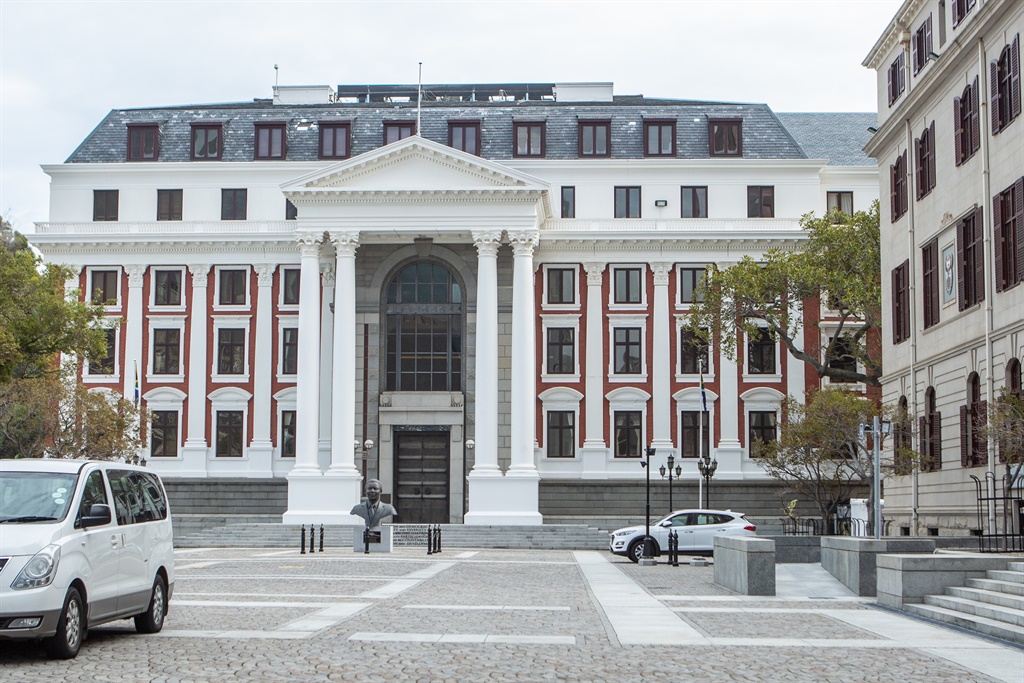
Parliament should set the minimum standards that are reasonable enough to judge that whoever it intends to elect as president is indeed capable of fulfilling the dictates of the oath.
There are two possible ways for Parliament to comply with the Constitutional Court judgment that declared the electoral law as unconstitutional because it doesn't allow individuals to stand for provincial and national elections.
The first is a narrow-minded, tick-the-box compliance approach. This would mean simply to cut the mixed electoral system applicable at local government level and paste it at the national level.
The local government electoral system is a fusion of proportional representation and ward-based direct elections. At local government level there are ward councillors directly elected and proportional representation (PR) councillors who are derived from the lists of political parties.
A cut-and-paste compliance with the New Nation Movement judgment delivered on 11 June 2020 would avoid a comprehensive evaluation of the effectiveness of electoral systems at all levels of public representation. There would be no attempt to improve.
The primary aim would be to comply purely for compliance's sake. Public inputs that Parliament is compelled to invite prior to the legislative amendments would be mostly academic.
No perfect system
Many political observers who have said the judgments won't change much in our electoral system have based their arguments on the assumption that Parliament would be totally unimaginative when seeking to comply with the court judgment within the next 24 months.
They may be right; unless voters, including the apathetic, suddenly jump in support of individual contestants in future elections.
The second way to comply with the court judgment would be broad-minded and imaginative. If this approach becomes the preferred route, Parliament would take the opportunity not only to comply with the court judgment, but to also review the entire electoral system.
There is no perfect electoral system.
Over time, even the best system gets hijacked and diverted from serving the people to serving vested interests. So, ideally, assessment of electoral systems should be conducted every 10 years.
The electoral system in the United States of America, the supposed leading liberal democracy in the West, is a classic example of political decay, to borrow a phrase from the political scientist Francis Fukuyama. It is transparently corrupt.
Powerful lobby groups, particularly of the well-heeled, have engaged in legalised corruption by supporting parties based on whether or not they stand to derive material benefits, not for the lofty values of the greater good of society. To make the corruption look acceptable, donations are public.
Paul Krugman, the US economist and public intellectual, conducted a desk-top study on why, amid the coronavirus, US President Donald Trump was organising an international oil cartel to curtail production and lift prices. Wasn't this against the American interest given that the country is the net importer of oil?
His inquiry yielded results that point to the corrupt nature of the US elections: Republicans received more funding from oil companies, than Democrats. This pretty much explained Trump's behaviour.
In South Africa, the multi-party proportional representation system is meant to produce a parliament that represents the will of the people. That’s according to Section 42 (3) of the Constitution which states: "The National Assembly is elected to represent the people and to ensure government by the people under the Constitution. It does this by choosing the President, by providing a national forum for public consideration of issues, by passing legislation and by scrutinising and overseeing executive action."
Mechanisms to prevent state capture
But, on many occasions when Parliament was called upon to scrutinise and oversee executive action it excelled only in dithering. Its decisions reflected the will of the strongest faction within the ANC, not South Africans. The Jacob Zuma years made that very clear when Parliament willingly sat on its powers.
Parliament has still not designed mechanisms to prevent state capture beyond Zuma.
It will take another court judgment in future for Parliament to design some qualification criteria for someone to be elected president. At this stage, the requirements for being a member of Parliament, a minister, deputy president and president are the same despite the sharp differences in roles and responsibilities.
The Constitutional Court had to instruct Parliament to develop mechanisms to fire the president whenever the need arose. This after opposition parties the EFF, UDM and Cope brought the matter to court. Parliament, or the majority, would not do it voluntarily.
If the current Parliament approaches the Constitutional Court judgment on the electoral system with the necessary broad-mindedness, it would conduct a comprehensive assessment of the electoral system at national, provincial and local levels.
There is nothing in the Constitutional Court judgment that prohibits Parliament from amending the Constitution where necessary, as long as it's not done to evade the judgment, but is meant to give effect to the overall constitutional design.
If Parliament is serious about preventing state capture, now and in future, and to elevate ethical leadership in society, combat corruption and encourage the prudent use of hard-earned public resources, it must establish some qualification criteria for anyone who wishes to be president.
Getting 50+% votes in the National Assembly must not be sufficient. Nor is it enough that the president takes the oath of office to act in the interest of the republic. We now know that the oath is meaningless unless the person taking it is qualified to fulfil it.
Parliament should set the minimum standards that are reasonable enough to judge that whoever it intends to elect is indeed capable of fulfilling the dictates of the oath.
This, together with impeachment procedures, could incentivise political parties to field fit and proper presidential candidates, and encourage only the best in society to stand for presidential elections.
An innovative Parliament would create avenues for this to happen. Is this too much to ask of the representatives of the people?
- Mpumelelo Mkhabela is a former parliamentary correspondent, editor of Sowetan and a political analyst.